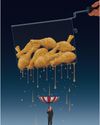Most multinationals retain product ownership, key value and intellectual property at their headquarters. As a result, India, despite having a vast pool of design talent, lacks significant Indian product companies in the semiconductor industry, says Jaswinder Ahuja, MD, India Cadence Design Systems.
Cadence Design Systems, one of the leaders in electronic systems design and automation, predicts significant opportunities for Indian companies that own and develop their semiconductor products. "What we are missing in India is the presence of homegrown product companies. Most multinationals retain product ownership, key value, and intellectual property at their headquarters. As a result, India, despite having a vast pool of design talent, lacks significant Indian product companies in the semiconductor industry. This is an area where we hope to see substantial change in the coming years, with the development of more Indian companies that own and develop their semiconductor products," said Jaswinder Ahuja, MD, India and corporate vice-president, international headquarters, Cadence Design Systems.
A combination of specific policies by the Indian government, such as the Design Linked Incentive (DLI) plan, along with the domino effect of the entire ecosystem bootstrapping in India, is set to transform the landscape. However, if a fabrication plant (fab) or an outsourced semiconductor assembly and test (OSAT) facility is established in isolation, it would still rely on global customers to fill its capacity, due to the lack of Indian product companies utilizing these facilities. This highlights the need for a comprehensive approach that encourages the growth of indigenous product companies to fully capitalize on the semiconductor ecosystem being developed in India.
This story is from the August - September 2024 edition of Entrepreneur magazine.
Start your 7-day Magzter GOLD free trial to access thousands of curated premium stories, and 9,000+ magazines and newspapers.
Already a subscriber ? Sign In
This story is from the August - September 2024 edition of Entrepreneur magazine.
Start your 7-day Magzter GOLD free trial to access thousands of curated premium stories, and 9,000+ magazines and newspapers.
Already a subscriber? Sign In

Chords of Success
For Saahil Goel, the deep-rooted passion for playing the guitar dates back to his high school days. Influenced by legends like Pink Floyd, Led Zeppelin, and the Pakistani band Strings, his musical journey mirrors his leadership style-balancing focus, discipline, and a collaborative spirit. Goel feels that playing guitar has enhanced his ability to balance focus and teamwork as a founder of an eCommerce shipping start-up.

IS YOUR RENT TOO DAMN HIGH?
Many small business owners struggle with their rents. Here's what to do.

HOW TO BOUNCE BACK FROM A BAD REVIEW
A one-star review can hurt your ego - and your business. But it's possible to prevent (and remedy!) this scary scenario.

HOW TO HIRE FOR THE FUTURE
Small businesses are struggling to find quality labor. So flip the conversation: Show workers how your business will set them up for opportunity.

You Can Hire Like Netflix
The streaming platform built an incredible team with a strategy called “talent density.” But you don’t need to be a tech giant to do it.

Speedy Growth Killed My Startup
We seemed to be rocking it - lots of press, major partnerships. Then we learned the harsh consequences of overlooking our customers.

Three Pivots to $100 Million
How do you find a working business model? Do it like Rowan-a brand that reinvented itself many times before finally piercing the ear-piercing market.

What Goals Actually Matter?
Some benchmarks are more important than others so what should you really care about? We asked six founders for their hardest-won lessons.

'Only the Strongest Are Going to Survive'
Brian Lee cofounded companies like LegalZoom and ShoeDazzle-and he believes a lot of conventional business wisdom is backward. Sure, it's harder to raise capital. But it's actually cheaper than ever to start a company.

HOW TRUST SAVED KFC
The former CEO of Yum! Brands explains how he turned around a struggling KFC-and the important lesson it offers for anyone in franchising.